
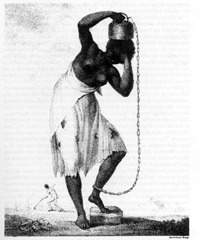
The huge monocrops that I have been photographing demanded, in the past, a large and pliable laboring population that could be summoned during peak moments in the agricultural season. Their homes, communities, transport and public life have been visually recorded against a backdrop of the ever renewed crop. The social order and the crop became inextricably linked in a visual iconography.
Some crops evoke strong negative emotions: sugar and cotton because of their association with slavery and peonage; tobacco because of its indictment as an unhealthy substance; potatoes in Ireland as a result of the famine of 1847 (though not potatoes in Maine or Idaho). Other crops became generally associated with a wholesome way of life such as corn on the prairies of Iowa and Illinois, or wheat in Kansas. Orcharding was admired for its beauty and the perceived healthfulness of the produce yet condemned for its use of migratory labor. To make the puzzle of association even more complex, crops introduced more recently such as soybeans, have almost no social identification with the landscape.
It is the deep historical meaning of the social landscape that truly intrigues me as a photographer. In spite of the uniformity introduced by modern farming, on close examination the look and feel of the region remains stubbornly true to the local. Colors, sense of spatial proportions, building materials, the clothing of laborers in the fields, all create a "here and no other place" quality. The social past is glimpsed on the landscape like shadows of fleeting clouds.
continued
Some crops evoke strong negative emotions: sugar and cotton because of their association with slavery and peonage; tobacco because of its indictment as an unhealthy substance; potatoes in Ireland as a result of the famine of 1847 (though not potatoes in Maine or Idaho). Other crops became generally associated with a wholesome way of life such as corn on the prairies of Iowa and Illinois, or wheat in Kansas. Orcharding was admired for its beauty and the perceived healthfulness of the produce yet condemned for its use of migratory labor. To make the puzzle of association even more complex, crops introduced more recently such as soybeans, have almost no social identification with the landscape.
It is the deep historical meaning of the social landscape that truly intrigues me as a photographer. In spite of the uniformity introduced by modern farming, on close examination the look and feel of the region remains stubbornly true to the local. Colors, sense of spatial proportions, building materials, the clothing of laborers in the fields, all create a "here and no other place" quality. The social past is glimpsed on the landscape like shadows of fleeting clouds.
continued
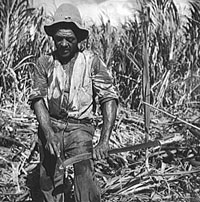
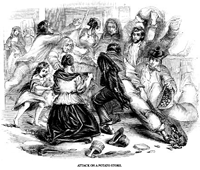
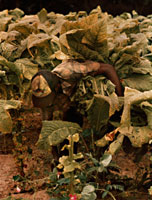
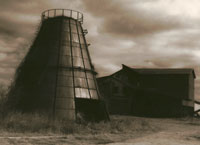
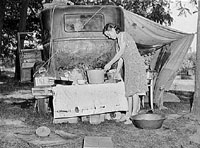
| PAGE |<< | 1 | 2 | 3 | 4 | 5 | 6 | 7 | 8 | 9 | | ||
| D. Gorton's Home Page Jane Adams' Home Page Memory and Judgment: Mississippi The White South Contact Us |
|||||||||
|
This page was last modified on:
|
|||||||||